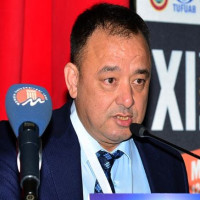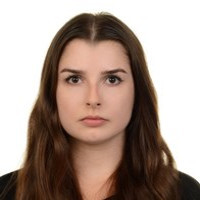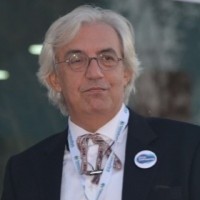Journal Boards
Chief in Editor

Editorial Board
Introduction
Kazimierz Becek works at the Department of Geoengineering, Mining and Geology, Wroclaw University of Science and Technology, Poland. He does research in remote sensing, photogrammetry, geodesy, land surveying, and geographical information systems. He is also a frequent consultant in aerial LiDAR and photo acquisition for Southeast Asian companies and beyond. His primary research is focused on the mathematical modeling of natural and anthropogenic systems.
Disciplines
Remote SensingGeodesy and SurveyingGeoinformatics (GIS) ForestryEnvironmental Science, Data Structures, Computing in Mathematics, Natural Science, Engineering and Medicine Information Science
Skills and expertise
TopographyForest productsCartographySurveyingRadarMappingDTMSpatial AnalysisDigital MappingGeomaticsEnvironmentPhotogrammetryGeoinformationGeospatial ScienceSatellite Image AnalysisDigital Terrain AnalysisEarth ObservationSatellite Image ProcessingGeo-processingGeostatistical AnalysisGeomatics EngineeringGeographical AnalysisSpatial StatisticsLidar Remote SensingTerrain AnalysisMonitoringSARVegetation MappingMicrowave Remote SensingHyperspectral Remote SensingGeographic Information SystemForestryData StructuresInformation ScienceRemote SensingEnvironmental ScienceLand Use ChangeRemote Sensing ApplicationsMapsSynthetic Aperture RadarVegetationSRTMRemote Sensing and GIS, Geodesy, Software Development, Lidar, Hyperspectral Image Analysis
Languages
German, English, Polish, Russian
Jorge Antonio Silva Centeno was born in La Paz, Bolivia. He holds a degree in Civil Engineering from the Federal University of Mato Grosso do Sul (1988), a master's degree in Water Resources and Environmental Engineering from the Federal University of Rio Grande do Sul (1991) and a PhD in Geodesy - Universitat Karlsruhe (2000). He is currently a full professor in the Department of Geomatics at the Federal University of Paraná. He has experience in the area of Geosciences, with an emphasis on Photogrammetry, working mainly on the following topics: remote sensing, laser scanner, cartography, photogrammetry and image processing.

Marta Czaplicka – an assistant professor at the Department of Socio-Economic Geography, was involved in research on geospatial analyses and the use of Geographic Information Systems (GIS) tools in socio-economic geography and land management. Currently working on three research projects financed by the National Science Center of Poland.
Janis Kaminskis, Dr.sc.ing. (2010), Professor, RTU, Dipl.phys.(1990), in the Department of Geomatics at the Faculty of Civil Engineering, received a Master of Engineering degree in geodesy (with excellence, 1995). He has acquired and developed his professional values and competences in the Finnish (FGI), Danish (KMS/DTU) and Swiss (ETH) research centers and universities. Associate Professo Janis Kaminskis is an expert of the Latvian Council of Science, Latvian National Standard Technical Committee Nr.47 Geomatics chairman, president of national IUGG (International Union of Geodesy and Geophysics) committee under Academy of Science and lead member of the International Association of Geodesy (IAG); IAG sub-commission for EUREF as well Chairman for sub-commission of Engineering geodesy, member of the Nordic Geodesic Commission (NKG) Presidium, member of the International Struve Geodetic Arc Working Group. Areas of research are astronomy, photogrammetry, geoinformatics and physical geodesy, geophysics incl. geoid modeling, gravimetry, reference systems, marine cadaster and related issues. He is the author and co-author of many Latvian and international scientific researches and publications, co-author of it between 3 books and monographs in Latvia and abroad. He currently does research at the Geomatics group (http://geomatika.rtu.lv/), RTU (https://www.rtu.lv/en). Jānis Kaminskis works in Higher Education, Civil Engineering and Geodesy and Surveying at the faculty of Civil and Mechanical engineering, Riga Technical University. His current projects are "High accuracy gravity field model for Latvia including its sea territory", „BalMarGrav - Homogenized marine gravity maps of southern and eastern Baltic Sea for modern 3D applications in marine geodesy, geology and navigation” and spatial planning of the Baltic Sea on the Kurzeme coast (on the maritime cadastre) together with the Latvian Maritime Academy.
 Austria
Web
Austria
Web
A.o.Univ.Prof. Mag.Dr. Wolfgang Sulzer is part of the Institute for Geography and Regional Sciences (University of Graz) and heads the research group "Geospatial Technologies". His research topics deal with the use of remote sensing in high mountains and in urban regions. A focus of recent years has been the implementation of new remote sensing-based monitoring technologies for urban research in Graz, with a focus on urban climate and urban development. The acquisition, documentation and visualization of cultural (landscape) heritages belongs to his recent research activities. Numerous master's theses and publications document the research results. Further information for lecturing and the research activities can be found at: https://geographie.uni-graz.at/en/our-research/gst/


 Bulgaria
Web
Bulgaria
Web
Head of Remote Sensing and GIS Department Professor at the Space Research and Technology Institute, the Bulgarian Academy of Sciences (SRTI-BAS). Research interests in remote sensing (RS/EO), GIS, landscape ecology, land use/land cover change (LULCC), environmental management, spatial data infrastructures (SDI), spatial decision support systems (SDSS), Environmental Impact Assessment (EIA), spatial planning, and multivariate statistics.
Associate Professor at the School of Production Engineering and Management of the Technical University of Crete (TUC) since 2018, teaching “Fluid Mechanics”, “Heat Transfer” and “Rational Energy Management in Production Systems”. He received his Diploma in Chemical Engineering in 1991 and his Ph.D. in 2000 from the National Technical University of Athens.
His research interests are formed around Green and Digital development. The central pillar of his research activities is the application of innovative solutions at the intersection of Production Systems and Information & Communication Technologies, for delivering high-value services in dynamically changing environments, incl. Industrial, Water, Energy and Environmental systems. Emphasis is placed on developing advanced process simulation modelling approaches to create industrial Digital Twins and Cyber Physical Systems.
His research activities have resulted in more than 130 publications in peer-reviewed international scientific journals and conference proceedings, 6 educational books and 5 chapters in edited books.
He is the founder and coordinator of the Digital and Industrial Innovations Research Group (indigo) at TUC, involving more than 20 researchers (faculty members, postdoctoral researchers and PhD candidates). He is the Principal Investigator of 12 Horizon, 2 Interreg and 2 National ongoing research projects, being the Project Coordinating (PC) for 3 and Technical Coordinator (TC) for 2 of them.
He is a founding member and coordinator of the In-Crete Innovation Alliance, bringing together all academic/research institutions of Crete and private enterprises, with the aim of promoting circular economy actions in Crete.
He is a member in the European networks ICT4Water Cluster and BRIDGE European Commission Initiative. He represents TUC in the LIAISE COST Action (Cooperation, development and cross-border transfer of Industrial Symbiosis among industry and stakeholders) and is responsible on behalf of TUC for the Lighthouse Mission Process Automation and Industry 4.0 of EURECA-PRO (partnership of 7 European Universities for responsible consumption and production).
